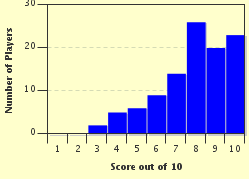Quiz Answer Key and Fun Facts
1. What do papillon, borboleta, mariposa, schmetterling, farfalla and sommerfugl mean in English?
2. What is the English meaning of veertien, quatorze, quattordici, paisprezece and labing-apat?
3. Can you translate dimnjak, komín, schoorsteen, chaminé, baca and fumario into English?
4. What is the English translation of amarillo, rumena, gul, isfar, buí, jaune and horia?
5. In English, what is the meaning of sukker, sucre, Zucker, azúcar, socker and zucchero?
6. In English, what do baignoire, wanna, badkar, cada, vonia and ubhavu mean?
7. What do estel, glente, vlieger, cerf-volant, aquilone, aitvaras, pipa and cometa mean in English?
8. What is the English meaning of sagar, jabuka, pomme, alma, mela and pupillam?
9. Can you translate planina, bjerg, vuori, montagne, sliabh and hegy into English?
10. What is the English translation of tovallola, handdoek, Handtuch, asciugamano, toalha, prosop and kitambaa?
Source: Author
FatherSteve
This quiz was reviewed by FunTrivia editor
stedman before going online.
Any errors found in FunTrivia content are routinely corrected through our feedback system.


